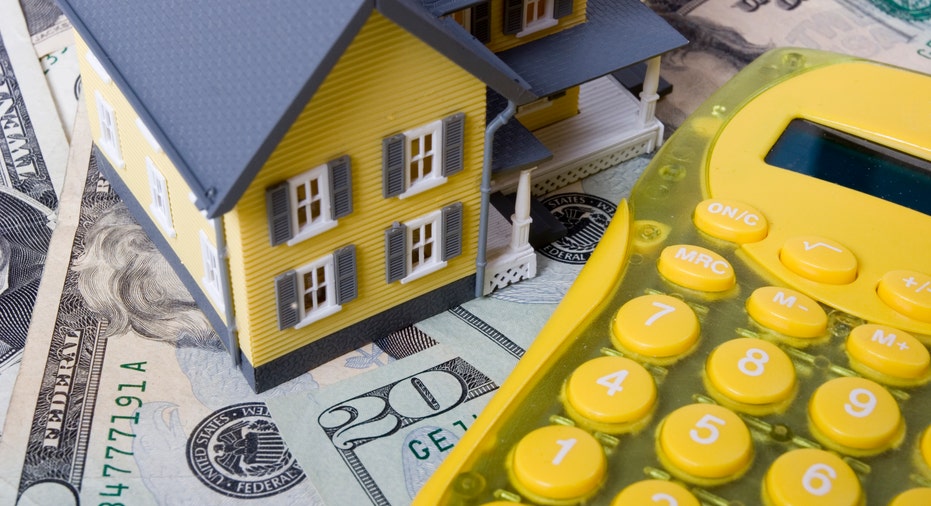How Much Money Do You Need For A Downpayment On A House

What is a down payment, and how much do you need?
Owning a home has long been tied to living the American Dream. But some with that aspiration may overlook the nitty-gritty details of getting from A to B. One of the most important steps to purchasing a home is saving up for a down payment.
A down payment is an upfront deposit for a significant purchase on credit and is ultimately applied toward the cost of your purchase. Down payments show creditors you're serious about buying a home. In the long run, it reduces the total loan amount you borrow and your monthly mortgage payment. Additionally, you could save even more money by paying a large enough down payment to avoid private mortgage insurance (PMI).
Not all home loans require a down payment, and some buyers may qualify for lower down payments. Your situation will vary based on your financial circumstances, location, type of loan and lender.
Calculate your down payment
The total down payment depends on the purchase price of your home and the percentage your lender wants you to put toward your home. As an example, we'll look at a $300,000 home at three different down payment percentages: a 30 percent down payment, a 10 percent down payment, and a 3.5 percent down payment.
On a $300,000 home, the down payments would be:
- 30 percent: $90,000
- 10 percent: $30,000
- 3.5 percent: $10,500
You can use a down payment calculator to help you set financial expectations depending on your loan type and terms.
ADJUSTABLE-RATE MORTGAGES HAVE OBVIOUS ADVANTAGES — HERE'S HOW YOU COULD BENEFIT
It's important to note that the type of mortgage loan you apply for will affect your down payment. For example, customers with excellent credit may qualify for a down payment as low as 3.5 percent with a Federal Housing Administration (FHA) loan. However, buyers with a shakier credit history may be required to deposit 10 percent. Additionally, if you apply for a jumbo loan (a loan that exceeds the conventional loan standards set by Fannie Mae and Freddie Mac) will likely have to provide a larger down payment.
Additionally, if you qualify for a USDA loan or Veterans Affairs loan, you may be eligible to purchase a home with no down payment.
Why do mortgage lenders require a down payment?
When you purchase a home, your lender is fronting a large sum of money (usually hundreds of thousands of dollars). The down payment is a show of good faith on the part of the buyer. This down payment shows the lender that you intend to pay the money back to the lender.
GETTING A SECOND MORTGAGE? HERE'S WHAT YOU NEED TO KNOW
If you fail to make payments or foreclose on the home, the bank could lose a lot of money. The down payment helps offset some of their risks by providing some cash upfront.
If you offer a down payment of less than 20 percent, your lender may require that you pay for private mortgage insurance until you've made payments that equal 20 percent equity in the home.
Is it better to put down a larger down payment?
The short answer: Usually, yes. A larger down payment means no PMI and a lower monthly payment. Larger down payments may also help you qualify for a lower interest rate. A lower interest rate means you pay less for your loan over time than you would have if you had a higher interest rate.
HOW TO GET PRE-APPROVED FOR A MORTGAGE
For example, if you opted to pay 30 percent down on a $300,000 home at 3.8 percent interest for 30 years, your total loan would equal about $454,263.76 (a total of $142,263.76 in interest). Alternatively, if you opt for a 3.5 percent down payment on the same home at the same interest rate, your total loan cost would be $599,321.38 (a total of $196,120.75) in interest. Over the life of your loan, that's a difference of almost $54,000.
Additionally, when you pay a larger down payment, your loan balance will be smaller. This allows you to build equity in the home faster, which could allow you to refinance your home at a lower interest rate more quickly.
In recent weeks, mortgage rates were slashed to help offset market damage created by restrictions related to COVID-19. The lower rates present current homeowners with a great option to refinance their existing property and, for new buyers, to snag a lower interest rate. Buyers and owners should be aware that many lenders are tightening their requirements to reduce risk in this current climate. If you have a sizable down payment, a clean credit history, now may be an excellent time to consider purchasing a home.
How Much Money Do You Need For A Downpayment On A House
Source: https://www.foxbusiness.com/money/how-much-money-need-down-payment-house
Posted by: weberfords2001.blogspot.com

0 Response to "How Much Money Do You Need For A Downpayment On A House"
Post a Comment